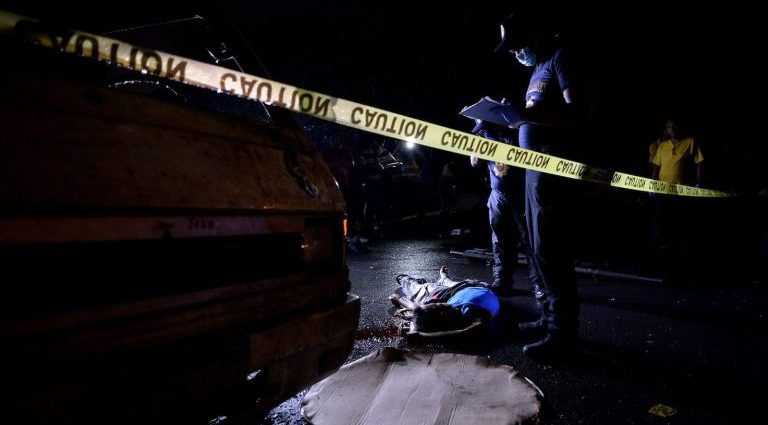In January 2023, the Philippines’ Secretary of the Department of Interior and Local Government, Benjamin Abalos Jr, initiated a process of vetting top police officials.
This process calls for the courtesy resignation of all generals and colonels of the Philippine National Police (PNP) while a committee of five assesses their involvement in drug dealing in the Philippines.
Abalos presented the initiative as a bold move to rid the PNP of “bad apples” and to restore the reputation of the police amid lingering suspicions of involvement in criminal activities.
Most top police officials seem to have accepted the call for courtesy resignations where after the investigation, those found innocent can return to service. While the vetting of the top management of the police is happening, it is a performance of political aspirations.
The initiative is not irrelevant or false. But it is part of an intricate political game in which diverse political actors, including supposed allies, plot against each other for political supremacy over the all-important policing institution.
It is important to note that the suspicions of corruption and complicity in drug trafficking also haunted the PNP during former president Rodrigo Duterte’s war on drugs.
In January 2017, during the most intense and violent part of that campaign, Duterte suspended operations while putatively cleansing the police of corrupt elements.
It was necessary, the logic went, to weed out corrupt and rogue elements of the police who threatened to compromise the legitimacy of the war on drugs and Duterte’s popularity.

During this time, purging strategies included a rotation of the police force between Manila and Mindanao where allegedly upright and less compromised police officers would be rotated in to serve in Manila while rogue elements were sent to be “re-educated” in Mindanao.
During the first year of the war on drugs, it was not uncommon for police commanders to be changed due to allegations of corruption and complicity.
Secretary Abalos’ reforms cannot be easily compared to these attempts to salvage a violent anti-drug campaign. Rather, we need to look at the performative politics of the initiative.
From a political perspective, the Abalos initiative can be viewed as a gesture by President Ferdinand ‘Bongbong’ Marcos Jr’s administration to distance itself from the war on drugs — a move designed to assuage critics in the Philippines and abroad.
This move is particularly consequential when seen from the international stage. Since he took office, Bongbong wasted no time in telling the world that the Philippines is “open for business.” This included that his administration was seen doing something to reform the police force and distancing himself from the country’s recent bloody history.
Yet, the Philippine government has remained uncooperative in accountability-seeking measures, especially when the International Criminal Court announced the resumption of investigation over alleged crimes against humanity as a result of the war on drugs.
Despite these reform initiatives, according to our interlocutors, the killings have continued in urban poor communities. Arrests, abductions and killings of activists have been prominently featured in the news, suggesting a clear continuation of the Duterte administration’s hardline stance.
Beyond posturing, the Abalos initiative signifies an implicit admission of the failure of the murderous war on drugs. After six years, so-called narco-generals and narco-politicians remain in positions of power and have gone unscathed. This is despite strong rhetoric against individuals and groups involved in the illegal drug trade.
Human rights groups in the Philippines have pointed this out all along. The war on drugs is a deeply compromised endeavor — morally, legally and in terms of efficiency. It is selective in its targeting of the poor and marginalized.

Apart from being a compromised attempt to rectify the errors of the previous administration, the initiative can also be seen as part of a power struggle within the Duterte–Marcos alliance. The police, yet again, become an important political vehicle in ways that do not bode well for the future of policing in the Philippines.
Arguably, the initiative is an empty gesture when the Philippine government has failed to ensure the speedy dispensation of justice in cases that it found to have serious irregularities. The continued incarceration of the opposition Senator Leila de Lima, whose accusers have largely recanted or declared their statements as politically influenced, suggests as much.
A genuine transformation of the PNP would involve moves to reduce the avenues of political actors to use the police in furthering their own agendas, introduce stronger anti-corruption initiatives as well as the development of a stronger human rights culture in the police force.
Steffen Jensen is a Professor of Politics and Society at Aalborg University in Denmark and a Senior Researcher at DIGNITY: Danish Institute Against Torture.
Karl Hapal is an Assistant Professor at the College of Social Work and Community Development, University of the Philippines Diliman, Philippines.
This article, republished with permission, was first published by East Asia Forum, which is based out of the Crawford School of Public Policy within the College of Asia and the Pacific at the Australian National University.

